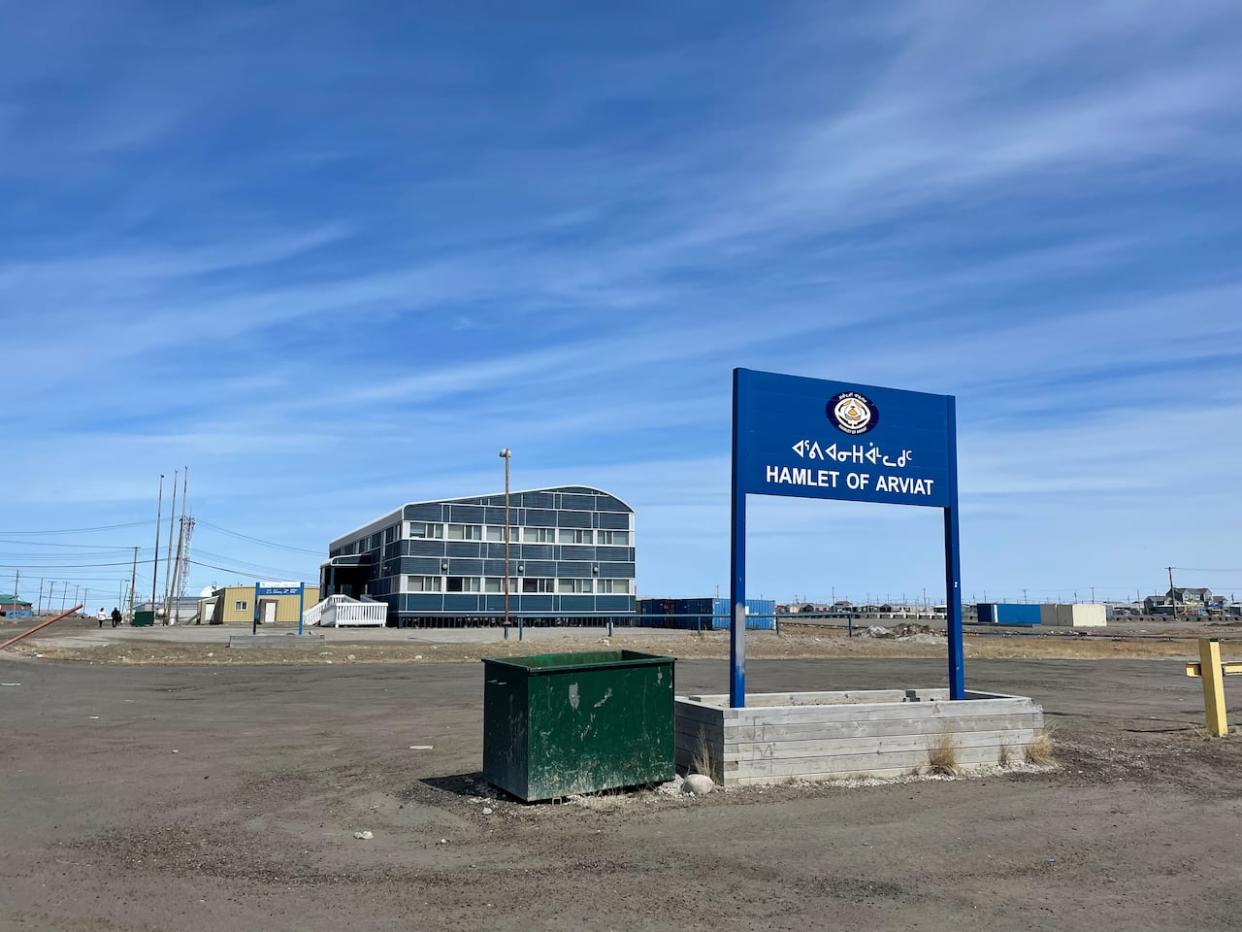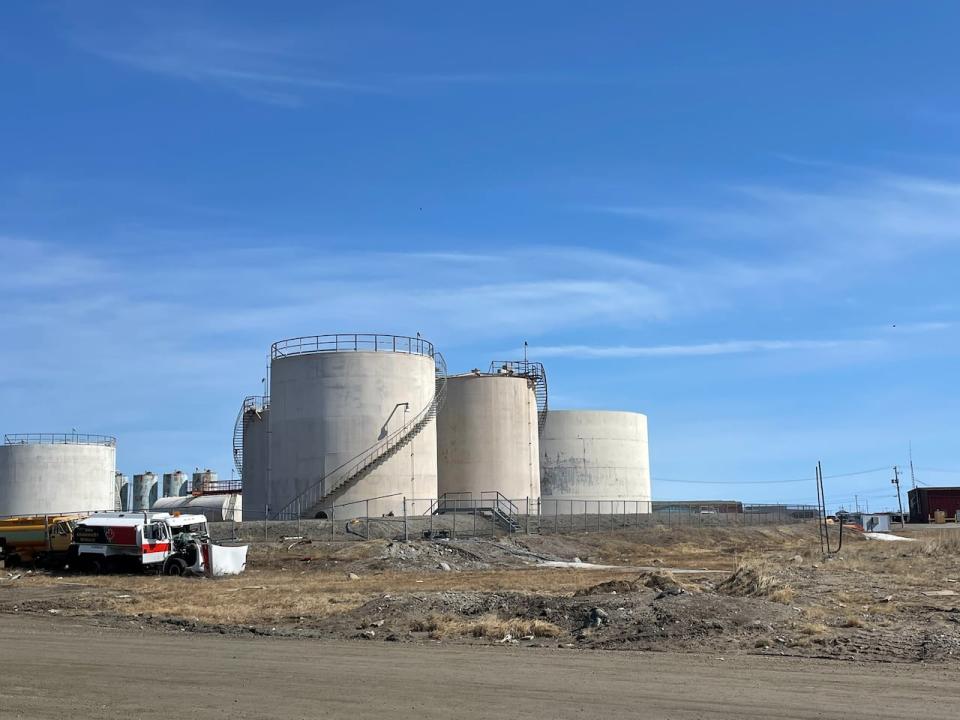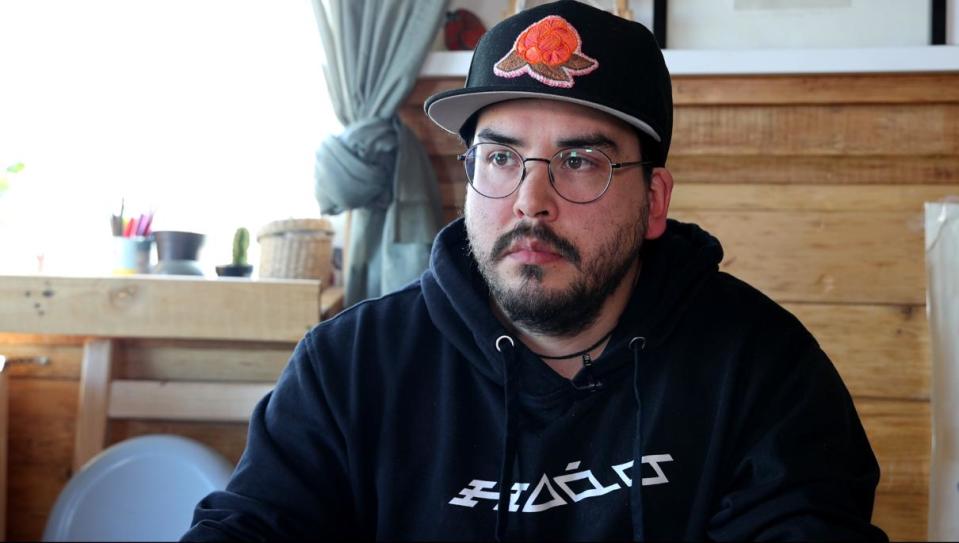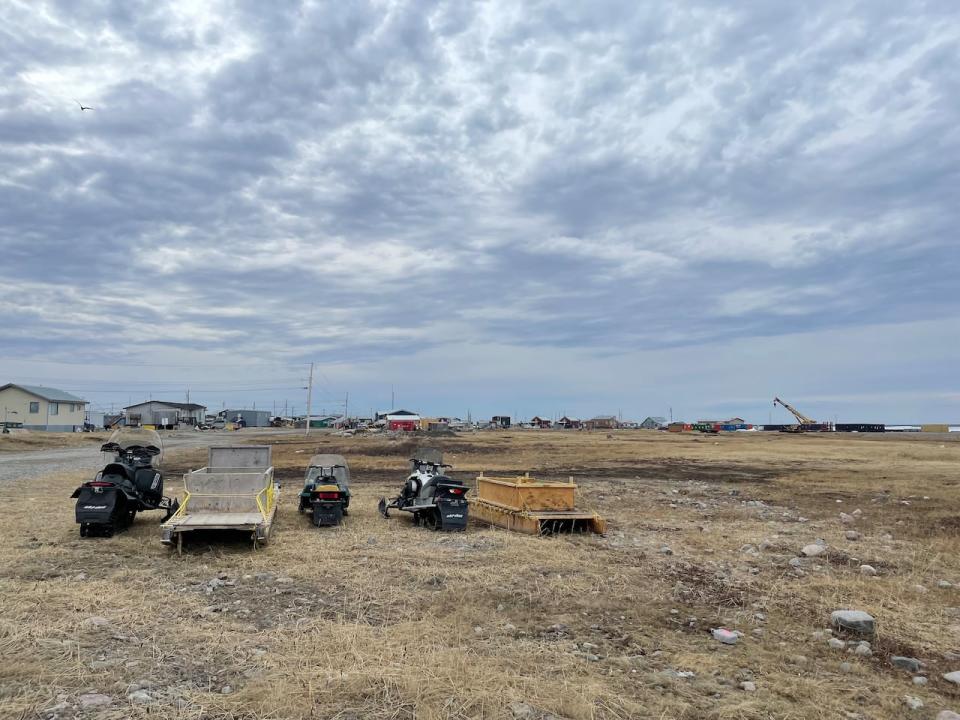'Hazards to the community': How plans for a Nunavut fuel tank farm fell apart

A director with the Government of Nunavut warned his department that a plan for a new fuel tank farm in Arviat likely wouldn't be approved elsewhere in the developed world and claimed the project was pushed for political reasons, according to emails obtained by CBC News.
The emails reveal the debate among Community and Government Services (CGS) staff last spring over growing community concerns about the proposed fuel tank farm's location.
"This location would likely not be approved elsewhere in the developed world due to hazards to the community," former CGS infrastructure director Ahsan Khan wrote to his colleagues on April 21, 2023.
The same day, a group of Arviat residents who live on the shoreline wrote a letter to CGS, saying they were worried about how the proposed tank farm could affect their health and the environment around their homes.
In reference to the letter from local residents, Khan told his colleagues the community was raising pertinent questions that should have been raised during the project's planning phase.
The tank farm was originally set to be built on Arviat's shoreline at a cost of $63 million, but those plans were scrapped in June after community outcry over the project's proposed location. A new site for the proposed development has not yet been selected.

Arviat's existing fuel tank farm, built in the 1980s, is no longer big enough for the growing community. (Emma Tranter/CBC )
In his April 21 email, Khan also accused the department of pushing the project for political reasons, "despite the cheaper option of an upgrade to [the existing tank farm] being available."
"There is still time to reflect and do the right thing," he wrote.
Khan no longer works for the territorial government and CBC News was unable reach him for comment.
Arviat's existing tank farm needs to be replaced. It was built in the 1980s and 1990s and is no longer big enough for the growing southwestern Nunavut community.
According to Statistics Canada, the community's population grew by nearly eight per cent from 2016 to 2021, more than any other community in the territory.
'We have not remained impartial on this issue'
In an April email, Daniel Pisani, executive director of infrastructure, responded to Khan's concerns about the letter from concerned residents.
Pisani's reply was originally redacted by CGS and was released in full after CBC appealed the redactions to Nunavut's Information and Privacy Commissioner.
"We have not remained impartial on this issue from day one," Pisani's email reads. "This has been stated many times that this is the government's mandate, where you hold a very senior role and it's your region's project."
CGS declined an interview with CBC News and offered a written statement instead.
According to the statement, Pisani's response to Khan's email was written "in the context of managing the interdependencies between multiple complex projects" and after other potential sites were evaluated.
CGS also told CBC News the project is not linked to the territorial government's current mandate and "does not reflect the department's commitment to objective evaluation of sites within the project process."
The new, proposed tank farm would have four vertical tanks: two five-million-litre diesel tanks, one 3.33-million-litre gasoline tank, and one 1.5-million-litre Jet-A-1 tank.
Earlier last year, the Arviat hamlet council — which chose the shoreline location in 2022 from among two presented by CGS — approved rezoning the land from a residential area to an industrial zone. The bylaw created to do that has since been rescinded.
Residents like Nooks Lindell and his family, who live on the shoreline, agreed a new tank farm is needed in Arviat, but strongly opposed putting it so close to their homes and the surrounding bay.
"I don't have much trust." Lindell told CBC from his home in Arviat in May. "As Inuit, we've been put in positions where our health hasn't been a priority for too many years now."
"All we get told is that it's within federal guidelines. But that doesn't help me sleep at night."

Nooks Lindell, who lives on Arviat's shoreline, strongly opposed the proposed tank farm location. (Jordan Konek/Konek Productions )
'Less controversy than anticipated' at public hearing
As part of the rezoning, the hamlet was required to hold a public hearing in the community.
A meeting held on April 22, 2023, attracted "less controversy than anticipated," according to an email from William Patch, the territory's director of planning and lands.
Despite what appeared to be a successful public hearing, CGS staff also expressed concerns about the project potentially facing an appeal by the public through the Nunavut Planning Act.
"We must be extremely careful during the hearing and not say anything that can be proven wrong in court as advised by William [Patch]," Khan said in an email on April 19, 2023.
Pisani later told CBC News there was misunderstanding within CGS and that bylaws cannot be appealed. Instead, residents who were unhappy with the bylaw could petition the minister on the matter, he said.
"There was never any possibility of a rezoning being appealed," Pisani said.

The site where Arviat's new fuel tank farm was proposed to be built, seen here from outside resident Nunia Anoee's home. (Emma Tranter/CBC )
Lessons learned and a new plan
Pisani said there are many "lessons learned" from the entire process and that CGS plans to work with the hamlet on every step of the process moving forward.
"We all need to do a better job there, making sure we are addressing the concerns of the residents, making sure we have a site that works," Pisani said.
He said ultimately it will be up to the minister, who approves the project, to decide whether enough consultation was done.
"We don't build a lot of these tank farms. It's a continuous learning process," Pisani said.
CGS said in a statement that site selection is a "critical component" of the project planning process.
"CGS is committed to ensuring this project is completed in compliance with all applicable legislation at a site approved by the municipal council after consultation with the community."
A second community consultation will be held sometime between Jan. 29 and Feb. 2.
That will then lead to a third community visit where site options are finalized and final recommendations will be offered to the hamlet council this fall.


